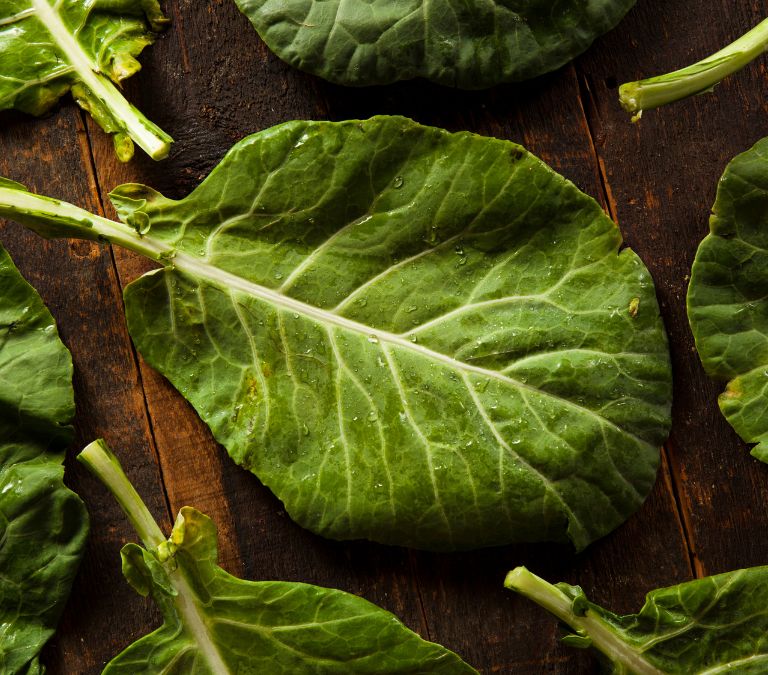Menopause is a woman’s life phase where her menstrual cycle becomes non-existent, and giving birth becomes impossible. This phase comes naturally and begins immediately when a woman’s period ceases for 12 consecutive months. The transition into menopause could last several years. This period is known as perimenopause.
Unfortunately, with menopause comes some undesirable symptoms. As women, we are more susceptible to various illnesses throughout our period of menopause. So many diseases experienced by women at the menopausal stage of their lives could be attributed to menopause.
While these symptoms are usually mild, some severe ones have been reported, which could be detrimental to our health. Some symptoms like hot flashes and night sweats are prevalent in menopausal women. While the symptoms are usually mild, other symptoms like Polycystic Ovary Syndrome and ovarian cancer could also be attributed to menopause.
Generally, many women in the United States will only experience the mild effects of menopause. For these women, the phase of menopause is a gateway to freedom from the troubles of the reproductive years. For some other women, the period of menopause marks the beginning of another excruciating phase of their lives.
These women go through the most during menopause. They do not just experience the signature hot flashes and night sweats; they go beyond symptoms of high severity like osteoporosis, diabetes, and depression. With this, many women try as much as possible to find the best ways of treating these symptoms, so they do not lead to more damning complications.
Menopause is not an illness. It is a natural transition that every woman must go through. With this, one could manage the symptoms associated with it to cushion the general effects of menopause on us. One very effective way of handling these symptoms is through diet changes.
Your diet can help improve your menopausal conditions by reducing symptoms and ensuring a smooth transition into menopause. Unfortunately, many women do not know that their diet choices could hugely affect menopause. As menopausal women, we shouldn’t just eat whatever makes us happy. During menopause, there are some foods to embrace and some to avoid. Of the former, they include dairy products, healthy fats, whole grains, fruits, and vegetables. Of the latter, they include caffeine, overly spicy foods, excessively sugary foods, alcohol, and cigarettes.
Diet Changes to Subtle the Effects of Menopausal Symptoms
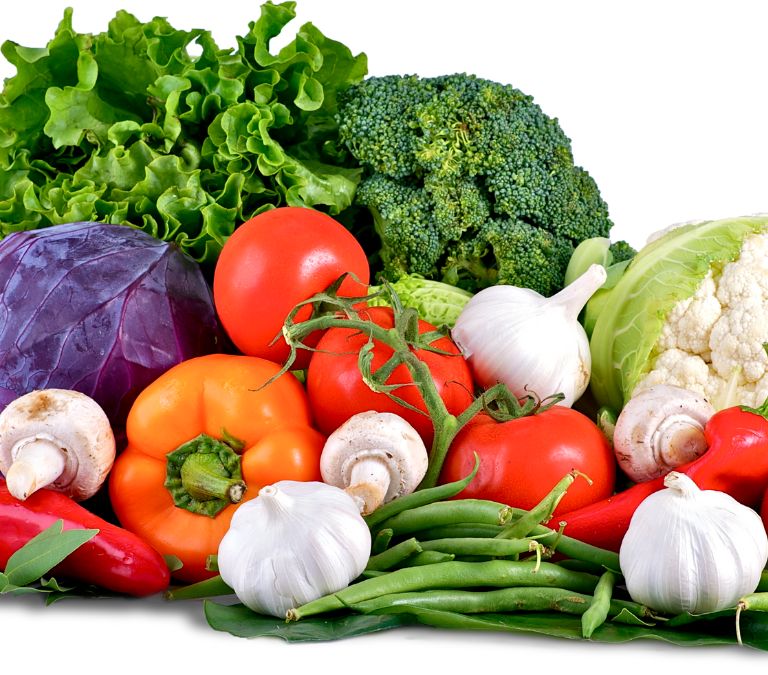
With every phase of life comes changes. Infant life is not the same for a youth or a grown man. So, just like other phases of life, the menopause phase comes with some changes that the body must adapt to maintain a healthy lifestyle.
As stated earlier, caffeine can worsen the effects of menopausal symptoms on your body. It means all foods with some amount of caffeine have to be limited. Some caffeinated products to limit are coffee, cocoa beans, 100% cocoa chocolate, bittersweet chocolate, milk chocolate, kola (used as a flavoring agent for many soft drinks), Green tea, Guarana (used in the production of energy drinks, and some other dietary supplements), chewing gum, yerba mate drink, energy drinks, and other coffee or chocolate-flavored foods.
According to The Food and Drug Administration, caffeine is not harmful, and few people have experienced adverse reactions. However, women in the postmenopausal phase of their lives must try as much as possible to limit the average intake of caffeinated products in their system to prevent worsened menopausal symptoms.
Also, highly spicy and sugary foods should be limited. If you love your pasta extra spicy, or you want your ice cream extra sweet, I’d say you reduce the amount of spiciness or the amount of sugar you take in if you’ve got to menopause. One should cut down the level of alcoholic beverages. If you take two bottles of beer daily or down three shots of whiskey whenever you return home from work, try sticking with a cup of juice or a bottle of milk instead. And cigarettes, of course, should be avoided as well.
These food products are known to trigger menopausal symptoms. However, these foods and drinks can be specific to some people. So, if you feel a particular food or drink triggers or aggravates your menopausal symptoms, it will be wise to cut or limit its intake.
So, with all these, some may ask what food should be eaten more by women going through the postmenopausal phase of life. As some food can aggravate menopausal symptoms, some food should also be able to reduce its effects. Thankfully, there are various nourishing food products you can take throughout your postmenopausal phase of life.
They include fruits and veggies like spinach, kale, cabbages, and collard greens. Adding these vegetables to your everyday diet plans will help you effectively manage the symptoms of menopause. Also, foods rich in Calcium and Vitamin D like milk, cheese, yogurt, tofu, sardines, beans, cereals, fish, eggs, and cod liver oil, together with foods rich in phytoestrogens like flaxseeds, soybeans, sesame seeds, tempeh, and linseeds, protein-rich foods like meat, nuts, and legumes, could be opted for over-processed foods and beverages.
I tried using the sun as my source of vitamin D, but it wasn’t compelling enough, as, with age, the skin gradually loses its ability to produce vitamin D from sunlight. Also, supplements like black cohosh, phytoestrogens, and probiotics can reduce the symptoms of menopause.
Menopause is a very delicate phase of a woman’s life. It means that small mistakes could lead to harmful complications. It is why when it comes to our diet, emphasis has to be laid on greens, as these vegetables are known to carry with them high amounts of nutrients needed by the body of a menopausal woman to maintain a healthy lifestyle, prevent or cushion the effects of harmful symptoms, and to manage life with these symptoms.
In this article, we’ll emphasize the work of greens in alleviating the severe effects of menopause.
Effects of Vegetables in Cushioning on the Effects of Menopause

Vegetables are of immense nutritional benefits. They are packed with various antioxidants, vitamins, minerals, and fiber. With this, vegetables are often recommended by nutritionists, dietitians, and doctors for healthy living. For this reason, up to 50% of your diet should include vegetables.
For women like us going through menopause, vegetables play a crucial role in helping to subtle the effects of these symptoms. According to research, menopausal women who consume a lot of veggies will experience a 19% drop in symptoms like hot flashes and night sweats compared to women who aren’t fans of veggies.
Postmenopausal women are prone to osteoporosis, a disease characterized by weak and unhealthy bones. With vegetables, women at the postmenopausal stage of their lives can utilize the chemicals from veggies to balance the estrogen levels in their systems. With this, they get protection from problems related to weak bones.
With this, menopausal women ought not to live life the same way they did before menopause. While vegetables aren’t the first diet choice of many women today, opting for them will save you from damning complications not just to cushion the effects of menopause but to live a healthier life.
Examples of Greens and Their Respective Effects on Menopause
Swiss Chard
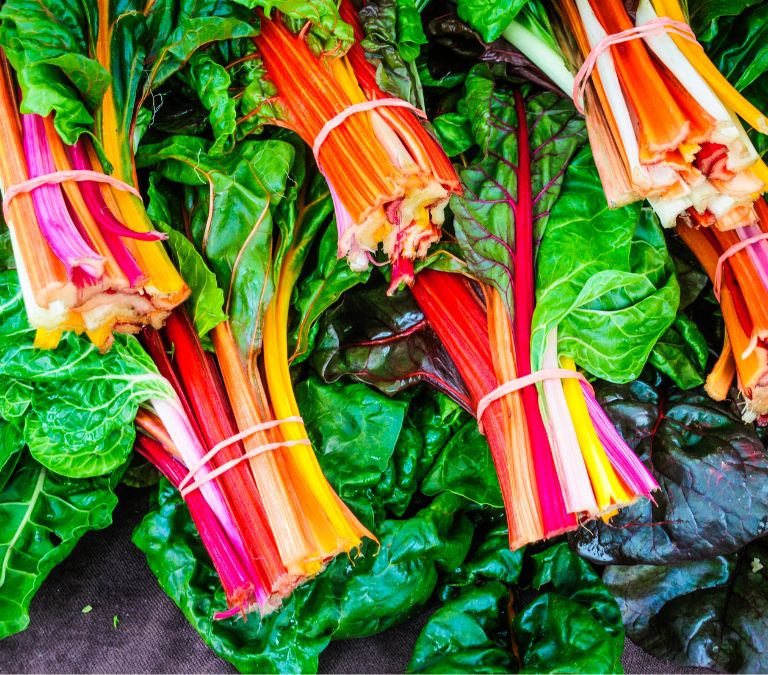
This green is packed with highly absorbable calcium and other vital nutrients. This vegetable is not very popular and, as such, is usually kept under the radar when selecting greens in our diet. The calcium in this very leafy vegetable can be utilized by the body to deal with the problems of weak bones caused by osteoporosis in menopausal women. With the calcium in it, Swiss chad is a good source of vitamins A, K, and C. These vitamins often play significant roles in maintaining many organs. The heart is of utmost priority for these organs as menopausal women are more at risk of heart problems.
Spinach
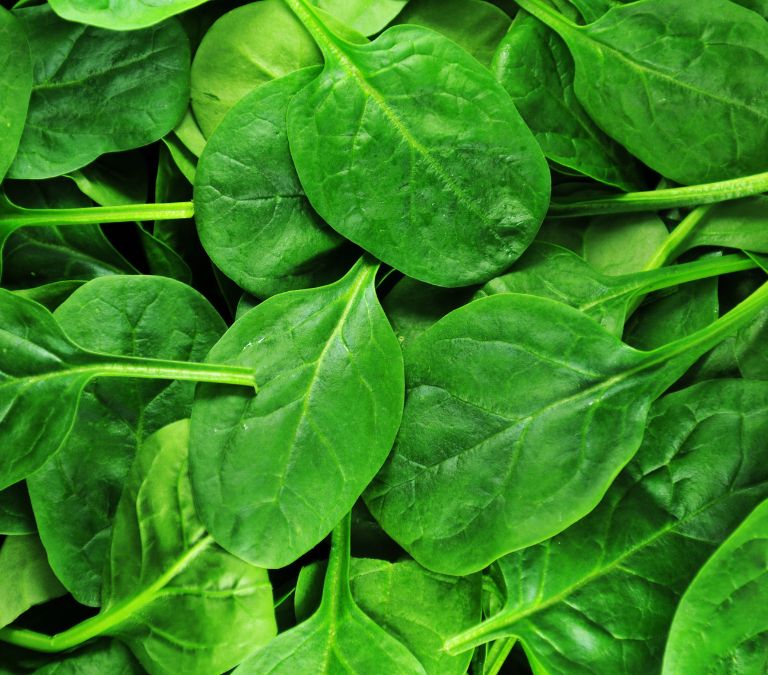
This vegetable can be used as a cooling food for relieving hot flashes. Spinach contains folic acid, which can help alleviate hot flashes. Folate or folic acid has been proven to help cushion the severity and duration of hot flashes, especially during menopause.
Also, the folic acid in spinach can serve as an anti-depressant during menopause. It means that taking spinach during menopause will not only help you with your hot flashes but will also help the emotional effects of menopause on you subtly. However, it is essential to know that very high consumption of spinach could lead to the formation of calcium oxalate stones in the kidney. You must lower the daily consumption of spinach should so you will not add to the existing problems of menopause.
Broccoli
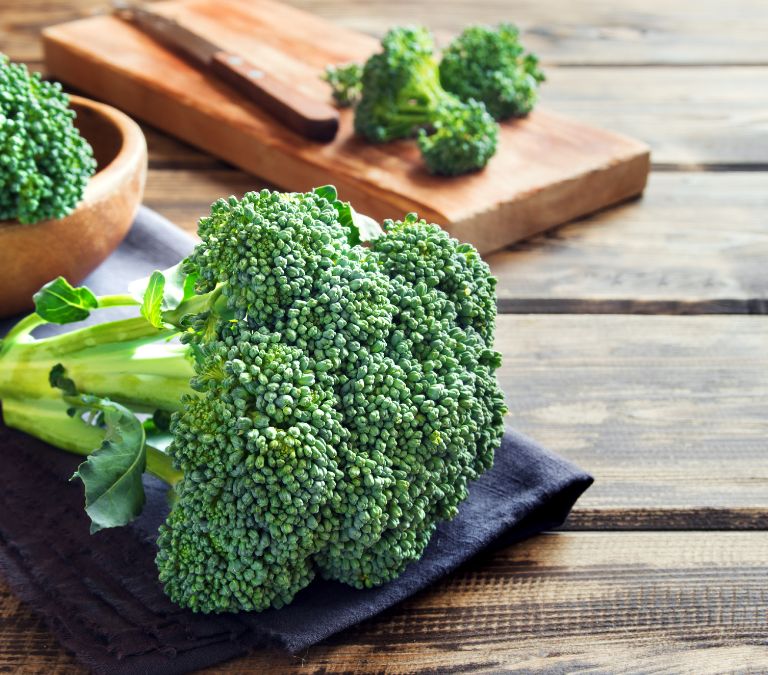
Broccoli can help create a balance in the estrogen levels of the body. Notably, studies have shown that menopausal women who eat broccoli tend to have decreased levels of estrogen capable of causing breast cancer and, in turn, increasing the levels of some other estrogen types capable of protecting the body from breast cancer.
Broccoli is also used to maintain a healthy heart and could be an immune system booster. This cruciferous vegetable is essential for postmenopausal women and can be added to our salad and grain. The popularity of this green has made it a perfect mixture for various food. Purchasing and adding this green to your diet will be pretty straightforward. Eating broccoli raw has more health benefits than eating cooked broccoli.
Kale
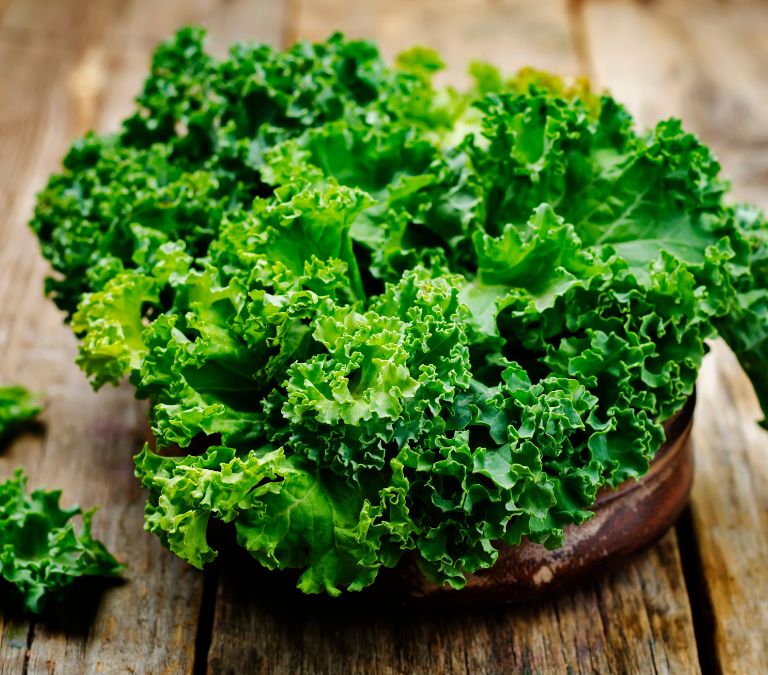
Like spinach in function, kale is also green with huge effects on menopause. Kale possesses healthy minerals like magnesium, potassium, and calcium. These minerals are needed by the heart for proper and healthy functioning. During menopause, many women tend to retain large amounts of body fluid, increasing the risk of heart problems. However, the minerals found in kale and sodium can help regulate fluid levels in the body.
Menopausal women with too much fluid in their system tend to have too much-absorbed sodium and less of the minerals contained in kale. Therefore, including kale in your diet will help supply the body with these nutrients; magnesium, potassium, and calcium, which can help reduce blood pressure and cushion the effects of hot flushes. Also, the toxins secreted by the body during menopause into the bloodstream can be removed by kale. It is due to the wide range of antioxidants present in it.
Lettuce
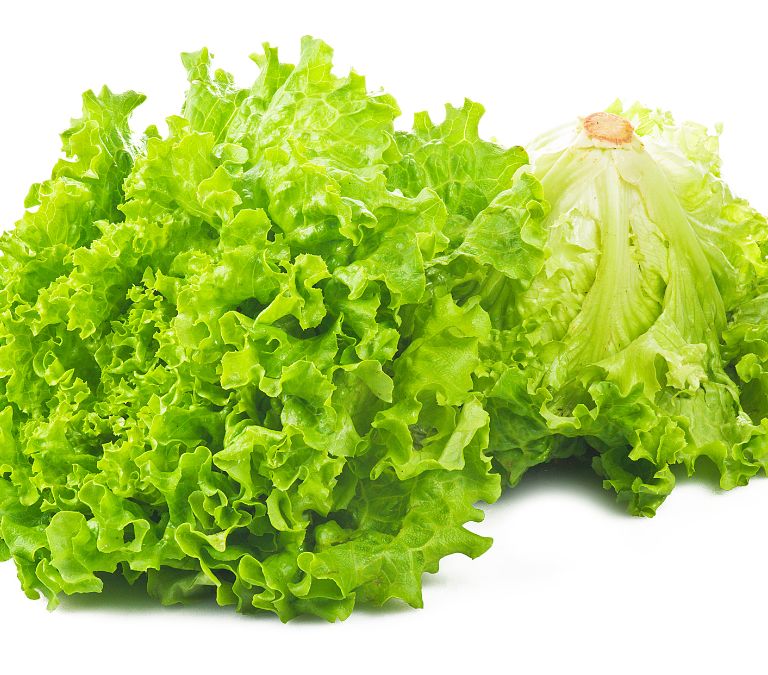
This vegetable is a high-fiber and low-fat diet. Greens like this are known to help manage type 2 diabetes and obesity. The menopausal women with type 2 diabetes are now alarmingly high compared to our mothers. In our modern society, women consume fewer greens and more pizza. Excess body weight is a well-known cause of type 2 diabetes. Adding lettuce to your salad and your general diet choices will help you groom a healthier heart and decrease your chance of being diagnosed with type 2 diabetes.
The liver and the muscles of our bodies do not store so much fat when we consume greens like lettuce, decreasing our susceptibility to type 2 diabetes. Eating lettuce is also a good green capable of hydrating the body. Lettuce is made of more than 90% water and could help supply the body with nourishing hydrants. Lettuce is an excellent source of vitamin K, which will help us maintain strong and healthy bones, especially when we become vulnerable to osteoporosis.
Cabbage
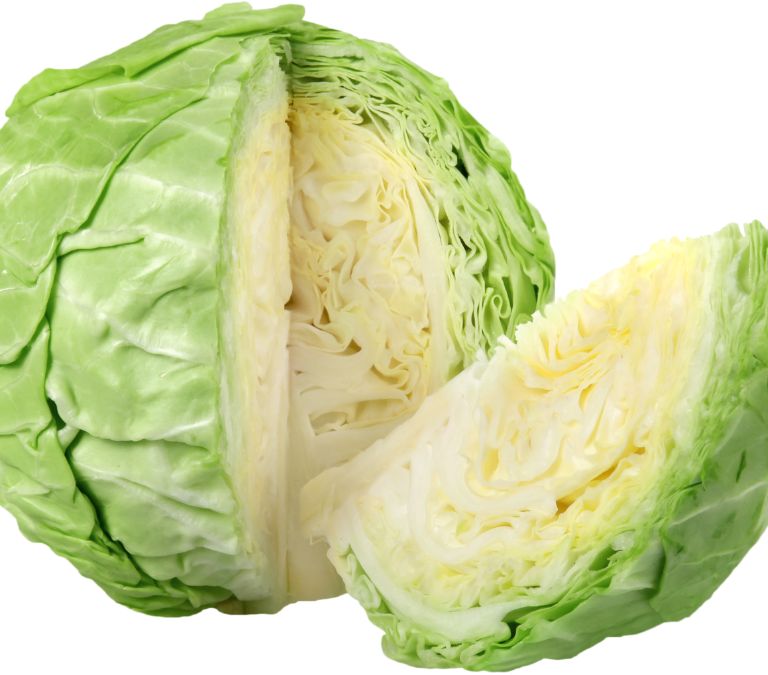
These are cruciferous veggies that aid in balancing estrogen levels of the body. Cabbage contains large amounts of vitamin B6 and magnesium. These minerals are vital in helping us maintain a healthy or acceptable estrogen balance. Owing to the dangers caused by too high or too low estrogen levels in the body, cabbages are excellent support options for balancing this hormone.
The unique nutrient profile of this green cannot be overemphasized. Cabbages have become very popular in so many modern recipes today. Cabbage is probably the most popular ingredient in our salads. With this, adding more cabbages into your diet plan shouldn’t be hectic.
Watercress
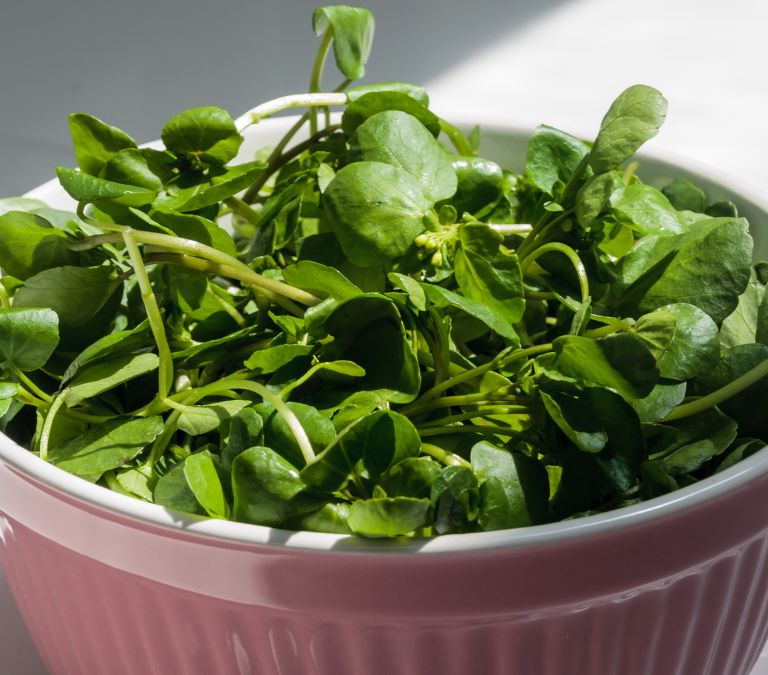
These veggies are rich in vitamin K and calcium. These two nutrients are excellent for maintaining strong and healthy bones. As a remedy for reducing our risks of osteoporosis, watercress should be taken to make healthy bones. Watercress has also been beneficial in targeting and prohibiting the growth of cancer cells.
Watercress is extremely low in calories and, as such, will not make you fat. Watercress could also be used as an antioxidant, owing to the large amounts of beta-carotene and other carotenoids. Adding a bit of this aquatic plant into your diet might help prevent breast and ovarian cancers, two of which are common in menopausal women.
Collard Greens
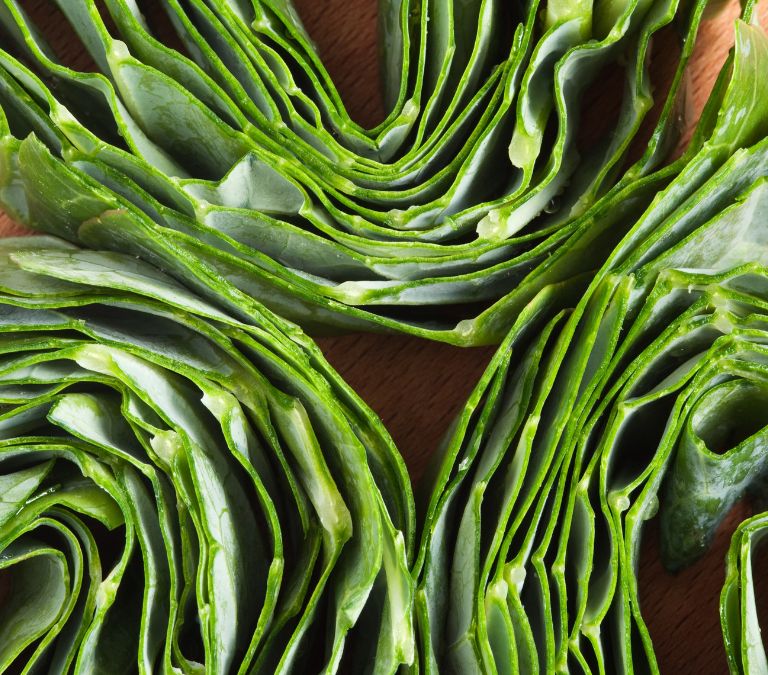
Leafy greens like these are excellent natural sources of iron, calcium, folic acid, and necessary vitamins. Collard greens are used to maintain a healthy blood flow and supply, maintain strong and healthy bones, and help with the problem of indigestion. For too many women in the United States, menopause can be very tough. It can be attributed to the issues that come with it. Of these problems, cardiovascular diseases and osteoporosis can be very severe and can lead to detrimental effects on a woman’s well-being going through menopause. However, routine consumption of collard greens can serve as a remedy for managing or preventing these lingering problems.
Romaine Lettuce
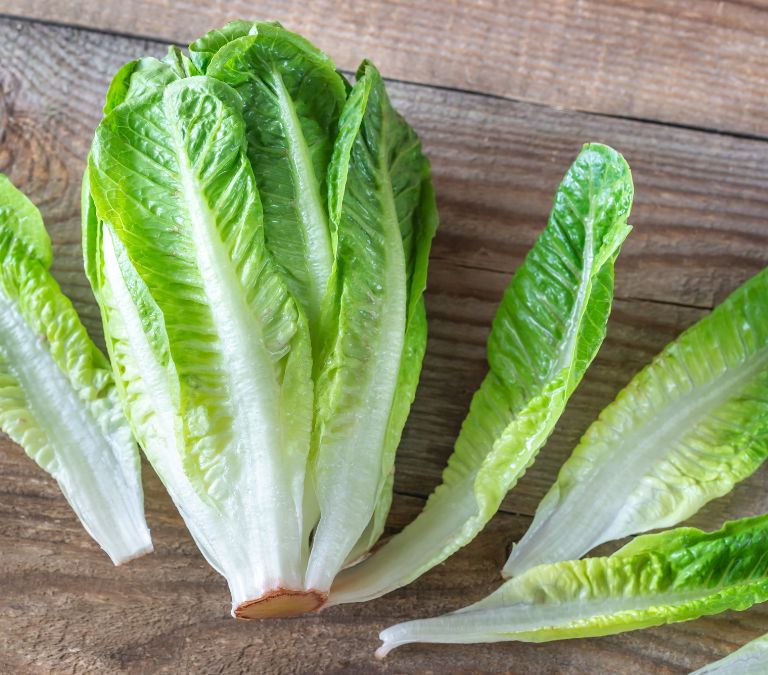
This green is a good source of vitamins A and K. This lettuce might help reduce the risks of heart problems in menopausal women by improving the levels of blood lipids in the body. The high amount of vitamin K in romaine lettuce could substantially maintain strong and healthy bones and proper muscle function. While this green has not been proven to decrease hot flashes, it can help prevent the rapid night sweats that come with hot flashes. Lettuce of this kind can be inculcated into your everyday salad. The crunchy texture could make your salads more exciting to eat.
Arugula
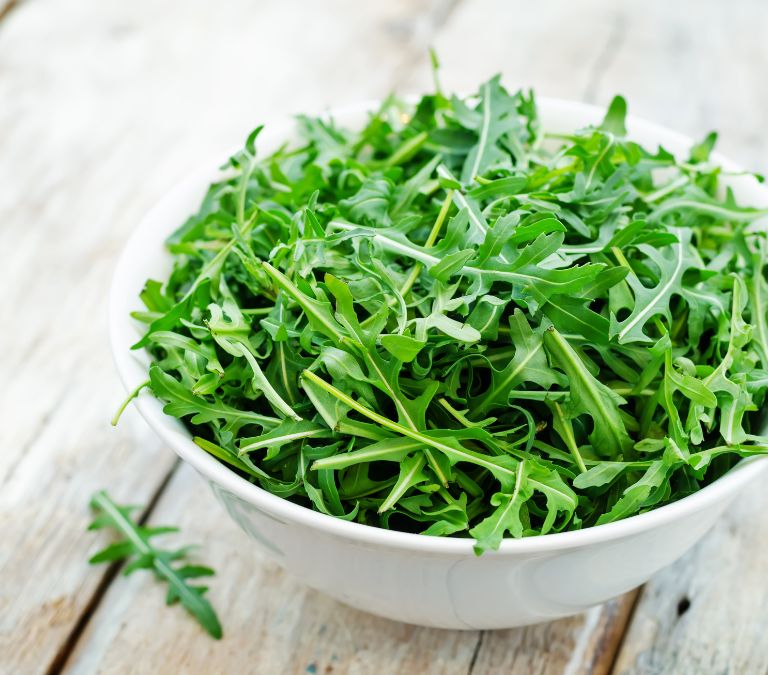
This pro-vitamin A carotenoids and vitamins B9 and K packed in leafy green could be used to maintain a healthy cardiovascular system in menopausal women. Arugula has been found to help increase blood flow and reduce blood pressure simply by widening the blood vessels.
Arugula is very low in calories and, as such, can be used as an excellent choice for maintaining a healthy weight during menopause. Also, arugula is used to protect the brain from cognitive decline. The brain also ages as the body ages, declining its functionality. Arugula can help prevent this from happening. This green peppery, and aromatic flavor could add more glitter to your salads.
Turnip Greens
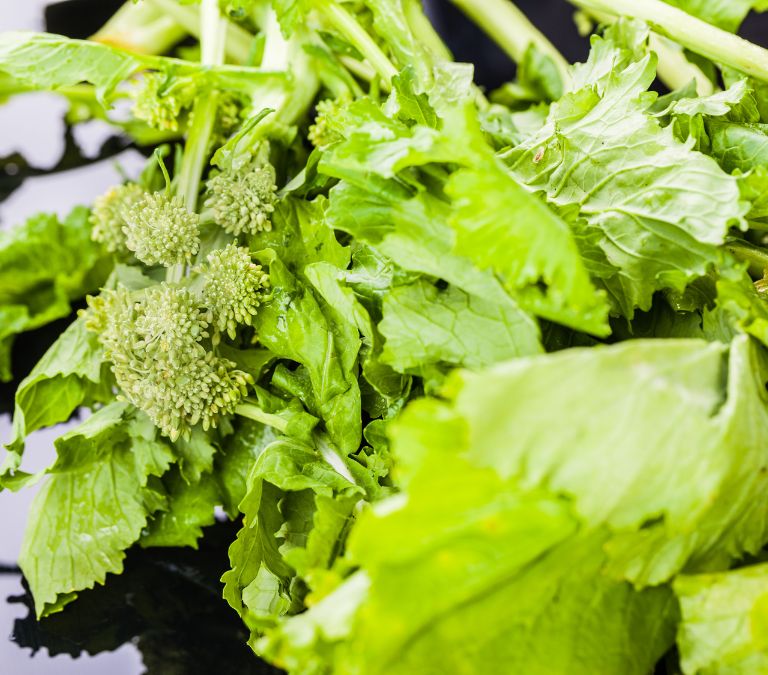
Turnip greens decrease your risk of heart diseases, inflammation, and cancer. Sometimes, these greens are used in place of spinach and kale in our diet choices. The benefits of turnip greens range from diabetes prevention to better sleep and improved mood. Also, this vegetable could help in preventing osteoporosis. Adding turnip greens to your diet choices will help you maintain a healthy heart and also help you relieve stress, especially when the emotional effects of menopause come knocking at the door.
Parsley

Parsley is a ubiquitous vegetable in the United States. This green is mostly included in our puree, sauces, dips, and salads. This green is rich in vitamin C and other antioxidants that can help menopausal women reduce their diabetes, stroke, and cancer risks.
When all of these greens are analyzed, a pattern is observed. Most greens do not solve only one menopausal problem. On average, each vegetable can help manage two issues of menopause. Due to the low amount of calories in many vegetables, vegetables serve as excellent diet choices for weight maintenance. Overweight menopausal women are most likely to suffer from problems of diabetes and other heart diseases. Low-calorie greens like these should be inculcated into our diets in place of our junk and overly spicy pasta.
While these veggies can be very beneficial to the health of women like us going through menopause, they can sometimes be more effective for some groups of women and less effective for some other women. Nevertheless, greens are the best choices we can include in our diet, especially during menopause.
People do not tell you that menopause gives you a fresh outlook on life. Leaving the pressure associated with reproductive years gives so many women a sense of self-esteem and accomplishment. You tend to focus more on yourself, your relationships, and your goals. Studies have shown that the feeling of optimism increases when you get to fifty. So, don’t see menopause as the body’s way of communicating retirement. You can do even more during menopause.
So, if you have not been taking your greens lately or have added very little to your diet, now is the best time to reconsider your diet choices. Greens are natural medications that could help us live longer and healthier lives, not just as menopausal women but as humans. It would help if you didn’t wait until Sunday to have a salad plate. Also, it is crucial to speak to a dietician or a doctor for cases of allergies. And remember to drink water; lots of it.

